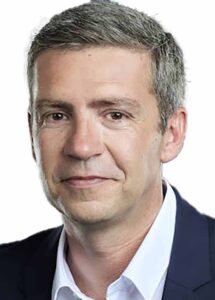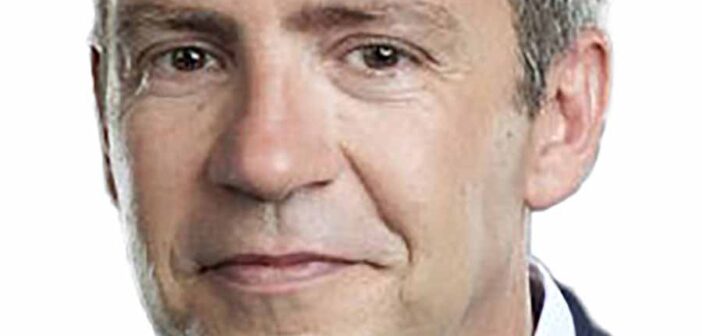
Algarve tourism is to focus will be on enhancing access to the interior of the region through structured offers such as pedestrian trails and new accommodation sites, supporting local business development while managing tourism pressures.
Speaking to Travel Extra at World Travel Market 2024, Andre Gomes, President of Algarve Tourist Board said winter visits, activities and dispersal were the key to growing the Irish market to the Algarve.
Mr Gomes asserts that while over-tourism may affect specific areas like Lisbon and Porto, the Algarve is not experiencing this issue, emphasizing a focus on tourism management instead.
A specialised unit has been established to monitor the performance of the tourism sector with regard to sustainability, capture data on activity and performance, and gauge the perceptions of tourists as well as local residents and businesses.
He says that engaging local communities is essential to ensure they benefit from tourism-related profits, promoting better living conditions and encouraging their involvement in the sector, which is crucial for maintaining hospitality and positive visitor experiences.
In the eight months to August 2024, 204,596 Irish visited the Algrave, up 10pc on the same period in 2023. Ireland is now the second most important market in the region. Bed nights in the Algarve were 1,254,733, although it is still expected Germany will recover the number two spot buy the end of the year.
Overtourism & the Algarve
Mr Gomes told Travel Extra: I don’t think we have a problem of mass over-tourism in the Algarve, nor in Portugal overall. There may be some spots, like in Lisbon or Porto, where we can see issues, but we are not experiencing that problem in the Algarve. I’m at the heart of that debate on radio and television all the time, and I never hear about over-tourism. I just talk about tourism management—that’s what we do.
We have a Sustainable Observatory for the tourism sector in our region, where we combine all the data and monitor not only the activity and performance of the sector but also the perceptions of tourists. We also focus on the perceptions of our companies, but most importantly, the perceptions of our residents.
It’s very important for us to have our local communities and residents committed to the tourism sector. They have to see that all the profits we talk about, which the sector generates in the country and region, are providing them with better lives and conditions. Much of our offer is not only for tourists; locals can use the experiences we provide for tourists.
I think this will be the challenge in the coming years. It’s important that local communities feel the benefits of our sector’s activities. If they don’t, we risk losing the advantage of hosting visitors well and sharing the kindness and hospitality that we have. I think that’s going to be crucial moving forward.
We want people to travel and explore parts of the Algarve that aren’t getting tourism. There’s a big push now, even nationally, that came from the previous government, and the current government is still focused on providing knowledge of our interior. As you probably know, in all of the country, the population is very concentrated on the coastline, which is also true in the Algarve.
We are focusing on providing offers and ways for people to access the interior of our region. We’re structuring offers like our pedestrian trails while also aiming to have new accommodation sites in the interior to support companies that want to develop their activities there. That’s also a way for us to manage the pressure that the sector puts on tourism.
I am confident that by the end of this work, we will have developed a new strategy for the next 5 to 10 years. I have no doubt that this will be the focal point. It won’t just be about whether we are growing 2pc in this market or 8pc in revenue.
We’re trying to structure more offers so people can experience our region in different, and perhaps more sustainable ways—through nature tourism for example. In the last ten years, we’ve been providing offerings, for instance, with our pedestrian pathways and cycling routes, promoting the knowledge of a different Algarve that needs much more than just sun and beach, much more than golf.
This is a better way to connect with our identity and authenticity, which sets us apart from other destinations. I think our identity, our natural culture, and our natural heritage are what differentiate us from our competitors. We’re investing heavily in that, and this focus is also enabling the emergence of new companies, new accommodations, and new tourist animation services that have sprung up because of the structured offerings we are providing inland. Interior on those routes, so it’s very nice to see some activity.
AirBnB
Self catering is always a big question because people don’t like us—hotels don’t like us, and they see it as Airbnb competing all the time. I normally say that, regarding accommodation, we have to have offerings for everyone. In fact, local housing and Airbnb provide opportunities for many people who can’t afford to stay in a five-star hotel or a luxury hotel. So, I continue to emphasize that we need to have options for everyone.
I often have one or two stakeholders come to me and say, “Hey, the Algarve could be like Monaco.” I don’t want the Algarve to be a monoculture. While I’m in this job, I want the Algarve to remain diverse. I don’t want that for our region. I believe that everyone should have the ability and the opportunity to experience what we offer.
We don’t want to concentrate on only the expensive markets. We need the backpackers; it’s important for us to elevate our quality of offerings. It’s crucial for us to provide high-quality services so people are satisfied with their experiences. But I don’t want only five-star offerings in our region.
I think it’s an obligation of the region to give everyone the chance to visit us and experience what we provide. Today’s backpackers are as important as millionaires in tourism. When you look at them, do you see only high-quality, highly requested tourists? No, I think they are nearly equally as important as others.
Connectivity & Seasonality
Faro is one of the best connected airports from Ireland, with flights from each of the regional airports, including a new service from Derry this year. The Shannon flight is gone for the winter, but it will be back for winter 2025-26—it’s definitely coming back. That’s something very important for us, not only with the new routes and direct connections to our region but also to extend the ones that only operate during the high season and bring them into the low season.
We do have that problem regarding seasonality, but it’s much better now than it was 30 years ago. Back then, we had two or three months of high tourist activity in our region; now we typically have three to four months with lower pressure of activity. From March or April until October, we have many offers that provide the ability to make the Algarve a year-round destination.
The Algarve Adventure is the story we want to tell. We are structuring our offer to provide motivations for visitation to our region throughout the year. We normally say we have 300 days of sun per year, so we are a perfect destination for people to visit all year long.
Golf is a segment that is very consolidated and important for the Irish market, and it’s an important segment for us to provide activity during the winter season.
New Developments for 2025
There are new investments in accommodation. In October, the Viceroy, a new five-star hotel opened near the mountains—it’s actually in the interior, on a mountain top. So it’s very good to see that because it shifts away from the image of the Algarve being only about the coastline and hotels near the beaches. The Algarve is much more than that, and we are working to show that to everyone throughout the months of the year.
New openings, we have the new five-star hotel on the mountaintop, The Viceroy at Ombria Algarve in Loulé, and attractions related to the desert on the attraction parks and experiences.
I think the Algarve can become a prominent site for diving in the near future.
We already have the Ocean Revival Park, which is in front of Alvor, featuring sunken Navy ships. This was established earlier this year in June-July. We also have the new EDP Art Reef in Albufeira, which offers a completely different diving experience.
This attraction was created using parts of an old energy plant from Lisbon, and it was designed by an artist Alexandre Farto, also known as Vhils, who is known for his works involving explosions in front of buildings. It’s very interesting. He has worked on creating this new park for divers to explore.
In the last few months, the first Marine Natural Park in Portugal has been officially recognized, located in front of Albufeira and Silves, The Pedra do Valado Marine Park.
It’s not visitable yet because we are currently at the stage of completing all the necessary regulations for the activities that will be run in the park, including fishery diving and tourist animation. This will allow us to offer three completely different experiences within a space of 20 kilometers. I think these will be very unique in terms of what you can do in the diving sector globally.
At the next WTM (World Travel Market), we will promote the Algarve as a diving centre. You know that we are making significant investments in major international events, like MotoGP, for instance. For the first time, we have secured the organization of MotoGP for two years, with the event scheduled for November 2025 and again in March or November 2026. This is important for us, especially outside the high season.
Next year, for example, we will have the National Gastronomy Day held in Albufeira on the 26th of July, with the main event there and side events in other municipalities, mainly in the interior, to encourage people to explore that part of our region. We continue to invest every year in providing new motivations and unique experiences for people visiting the Algarve.
Ireland and the Algarve
e Irish market is very important for us, especially considering the number of repeat visitors who come back every year. It is essential for us to present something new each year. Two years ago, in 2022, we were reaching the numbers we had before the pandemic. For 2023, we were already doing better than in the pre-pandemic years.
There’s probably no Irish person who doesn’t know or hasn’t heard about what we have in the Algarve—our golf sector, our beaches, and all that—which mainly comes from you after your visits or from family that has been there.
The real focus and challenge will be understanding why we are not getting the tourist reach we should be getting from the Irish market. I think the best part with Ireland is that people already know our product. Your advantage in the market is that nobody needs to be told—they are already familiar. All they want to know is, “Where else can we go?”
It is important to continue the work we do in the Irish markets. We must hold workshops and collaborate with tour operators. This is very important, but we must also focus on the foreign residents we have in our region. I believe they are our primary ambassadors. Not only do they host friends and family when they visit, but they also spread the word about our offerings.
Personal favourites
Personally, I love the West Coast, especially the area from Aljezur to Sines. But I also love the other edge near the River Guadiana to the coast—it’s amazing. It’s our hidden gem.
The Caribbean, specifically around the coastline, but on the interior—Mik is a fantastic place. Normally, I organize events and festivals, including astronomy festivals, to show people that we are more than just our coastline. We host events in those areas, but we probably need to do more to attract people there. Sometimes, when I’m driving my car in the middle of the mountains in Mik, I think people won’t believe that this is all Algarve. If you see the natural landscapes, people wouldn’t believe this is the Algarve.
We also want to showcase that this is a different Algarve, of course. One main advantage we have is that, in a relatively small region, we have a diverse array of offerings. You can travel from one side of the Algarve to the other in about an hour and a half to two hours. You can be at one beach and in half an hour you could be in the interior, up in the mountains. This is a great advantage that sets us apart from other competitors.
A person staying in our region for three or four days can combine all these experiences: they can enjoy a five-star hotel, visit an internationally recognized beach, play at an international golf course that has hosted significant tournaments, or explore a renowned museum, such as the one in Portimão, which showcases the history of our fisheries.
You can connect with artisans working with palm trees in the interior in Loulé, and you can do all that in two or three days in the Algarve. I believe that’s really our main advantage.
Questions about the numbers
The number of tourists also a challenge regarding infrastructure. Before I became president of the tourism office in the Algarve, I worked at the tourism office in Portimão, in the municipality of Portimão, where the Algarve belongs. During some times, we had about 50,000 residents, and during August, we had 300,000 people in our city. This puts pressure on everything; it puts pressure on our infrastructure.
We have about 150,000 beds in the Algarve, but this number doesn’t include local housing with less than 10 beds. We have more than 44,000 registered local housing units in our region, and I’m sure that about 40,000 of those have less than 10 beds. However, this is not accounted for by our statistics institute. Airbnb, of course, isn’t accounted for at all.
In 2023, we had about 20,400,000 night stays in the Algarve. The local housing with less than 10 beds is not included in these numbers, but I’m trying to work on this with an association that represents this segment of accommodation. The work we’ve been doing aims for us to potentially have 8 million night stays regarding local housing with less than 10 beds. So, in fact, if we consider that, the total would probably be around 28 to 29 million night stays in 2023. It’s incredible—more than 1 million guests!
This creates a problem with the National Authority of Tourism. We’re trying to find a way to have these statistics accounted properly because it’s relevant for us, especially for financing. As we often say, we don’t compete between regions. I don’t want the north of Portugal to have more or less tourism than the Algarve, but we do compete for financing. What determines the financing we receive for the regions is our performance, and our performance is critical.
A message for the Irish market
Just come and visit us more often! And let’s get more flights, especially in winter. That’s a personal goal of mine. When I ran for this job, one of my commitments was to secure more direct flights to the Algarve and extend high-season routes into the low season. Every airline has the same problem in Europe: what do we do with our aircraft in winter? Well, you have a perfect destination to send them to.
We have the interior of our region, our mountains, our West Coast, and our East Coast. It’s different and rich, allowing people to know and experience more about our offerings.




